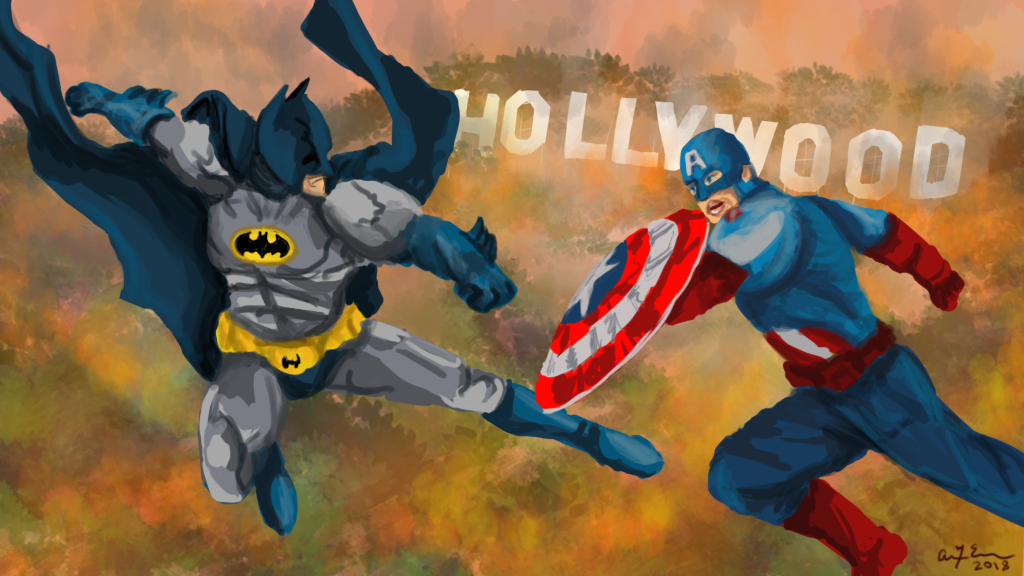On Brand: What the "Superhero Genre" Tells Us About Hollywood
by Ryan Black | published Jan. 29th, 2018
There's a lot to be gleaned about this dynamic from the successful adaptations of 2017, including from the Marvel Cinematic Universe's (MCU's) continued prominence or Fox's unique strategy for success with the X-Men.
Yet, the superhero projects which didn't work last year — as well as what they specifically failed to do — are almost more revealing about Hollywood than the ones that were a success.
Death by Brand Management
In 2017, there were a lot of stale (“The Defenders”/”Iron Fist”) and lifeless (“Justice League”) superhero stories that entered and then promptly left our collective consciousness. These adaptations felt less like creative projects than pieces of brand management — marketing endeavors being checked off on some corporate spreadsheet as a piece of intellectual property that’s now been made into a source of revenue.
What’s almost not funny is the overly simplistic train of thought studios buy into with the projects that most epitomize this trend. There seems to be this notion in Hollywood that if a story, character or group originated from a Marvel or DC comic, audiences in 2017 will automatically watch it in droves. However, this isn't always the case. For example, we might not know exactly how many people watched “Iron Fist” because of how tight-lipped Netflix is with its viewing numbers, but ... well, did you even remember “Iron Fist” came out last year? My point exactly.
To be fair, there is data that conflicts this. In particular, one study claims the adventures of Danny Rand was Netflix’s most-binged drama premiere. Perhaps the remarkable blandness of this Marvel show played a role in the subsequent lower viewership for “The Defenders.” Regardless of the hard numbers, however, it is apparent how poorly these Netflix shows have "stuck" or remained a part of the zeitgeist. And with two uninspired installments in close succession, audiences may just check out next time, just as was the case with “Justice League” after “Batman vs. Superman” and “Suicide Squad.”
While there are certainly worthwhile and engaging stories to tell with DC characters, that specific project had no point in existing other than to *try* and turn a profit for its studio. Yet, when you have a film so vapid, it shouldn’t be surprising when it fails to perform at the box office. Nevertheless, the takeaways from cases like “Iron Fist,” “Justice League” and “The Defenders” shouldn’t be that the "superhero genre" is a bubble waiting to bust. The conclusion one should draw from all three of these is that audiences don’t want to watch bad or boring entertainment.
The Marvel Genre
Yet, perhaps the MCU is partially why “superhero” is considered to be a genre. At the very least, its ubiquity may have engendered the feeling that a (financially) successful superhero film in the modern era has to be cut from the same tonal and visual cloth.
However, if 2017's entries are any indication, Marvel Studios deserves credit for loosening some of its restraints on individual films' directors. James Gunn continued to make Guardians of the Galaxy 2" feel quite distinct from the rest of the Marvel universe, while Taika Waititi managed to make a Thor film that quite clearly feels like a film made by the same person who directed "What We Do in the Shadows."
While there are numerous, more existential reasons to not be a fan of media mergers, Fox in 2017 seemed to finally be figuring out what to do with the characters they had. Instead of trying to compete in the shared universe arms race (
Envisioning More Than the Bottom Line
You may or may not agree that the creative distinctions between superhero adaptations are apparent enough to say they all don't fall under one genre. However, it’s hard not to speculate either way that many of these projects were initially scheduled because they were DC or Marvel adaptations — both due to their aforementioned perceived prospect for multi-million dollar profit and studios’ desire to utilize all of the intellectual property at their disposal. In most cases, it’s hard to imagine it was in fact because someone approached these studios with a creative vision in mind.
Yet, in the case of all the adaptations that worked this year, various storytellers were able to ultimately envision a purpose for each. Thus, it was ensured that such projects weren’t purely a line item on a movie studio’s spreadsheet. It’s admittedly a very backwards set-up — "project, then creative vision" — particularly in comparison to the countless pieces of art created this year which exuded the opposite.
Still, as




